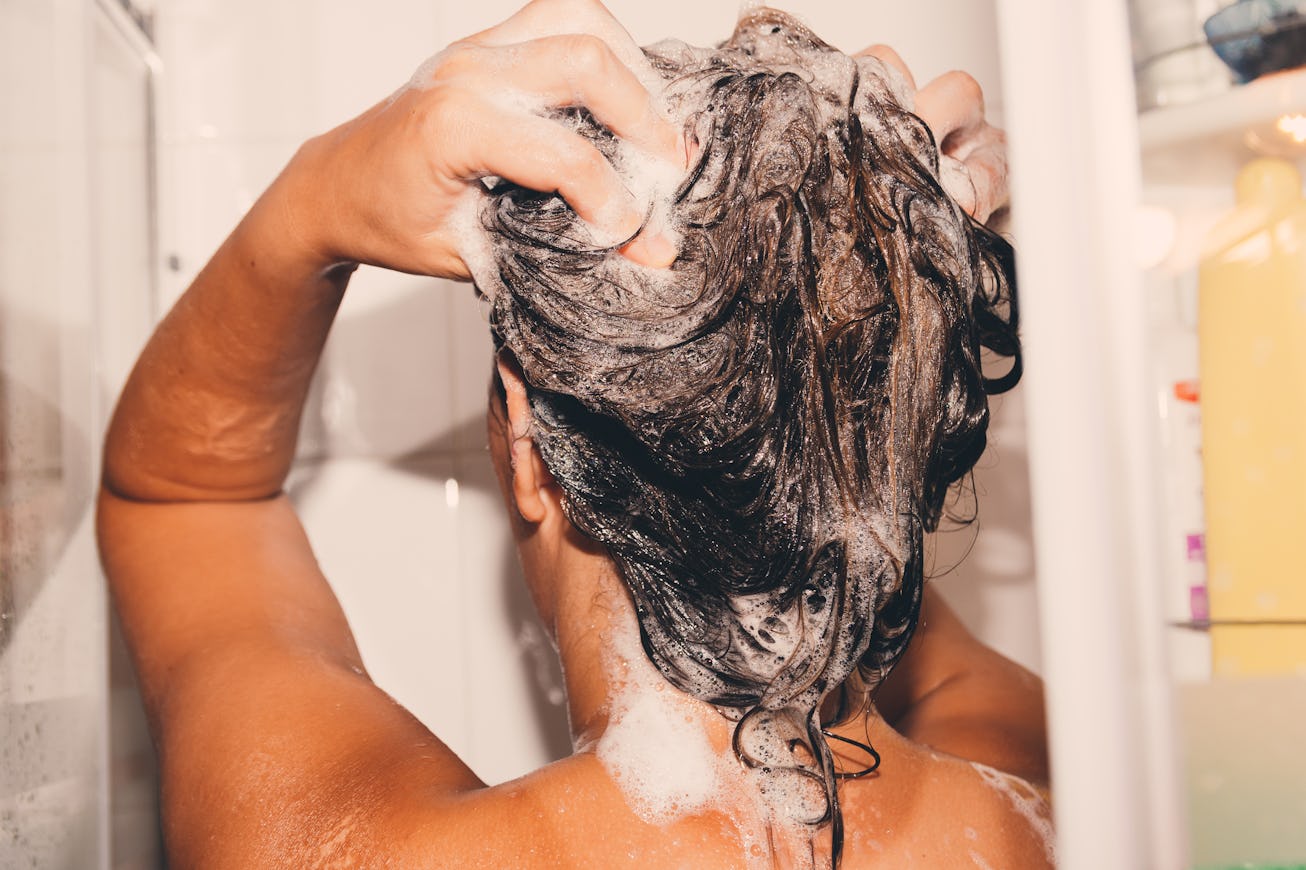
Beauty
Once & For All: Do You Really Need A Showerhead Filter?
A dermatologist and trichologist weigh in.
I have a Brita water pitcher sitting in my fridge, and I use a filtering water bottle every day — but I didn’t even know that filtered showerheads existed until my TikTok For You Page started filling up with sponsored ads for Jolie’s. Perhaps it’s because I live in New York, where the tap-water quality is world-renowned, or maybe it’s because I was skeptical about unscrewing my apartment’s showerhead, but my first thought was “Do I really need this?”
Everywhere I look, it seems the beauty industry is raising concern over “hard water.” More beauty companies have released their own filtered showerheads, like Act+Acre, Canopy, and Hello Klean. Hair care brands like Kérastase and L'Oréal have dropped shampoo and conditioners meant to "decalcify" water as you wash your hair. The accompanying messaging often sounds like this: The water in your shower is making your hair worse, and filtering it will make your scalp healthier and your hair stronger and shinier.
But before we all watch The Home Depot’s YouTube demonstration of how to change a showerhead, we asked a dermatologist and trichologist to answer all our questions about how shower water impacts your hair quality.
What Is “Hard Water?”
Water “hardness” is determined by the amount of minerals dissolved in it, New York board-certified cosmetic dermatologist Michele Green tells NYLON. The more mineral content, the harder the water is — so hard water typically contains an abundance of magnesium, calcium, and iron.
Is Hard Water Bad For You?
While hard water won’t impact your health, it may impact the quality of your hair. Results from studies on the topic have been inconclusive, says certified trichologist Marta Teixeira, specifically its effect on hair strength. But it stands to reason that mineral buildup can form a thin film on the hair that prevents moisture from reaching the hair shaft, Green says. Without proper moisture, hair can become brittle, dry, dull, or frizzy. This film can also prevent hair care products from being properly absorbed to improve the condition and strength.
What Is Hair & Scalp Calcification?
Calcium is a mineral that’s often brought up in the hair-health conversation, as it is often found in water and can be film-forming over time, leading to breakage and eventually thinning. But the exact levels of calcium can vary in different places, as does your individual sensitivity and exposure to it, Teixeira says. But if you seem to have lackluster hair no matter what products you use, washing with a decalcifying shampoo at least once per week might help manage the buildup.
Green recommends the new Kérastase Première pre-shampoo treatment and shampoo to decalcify dry and damaged hair. She says the main ingredient in these products is citric acid, which effectively dissolves calcium to remove deposits from the hair.
Would Everyone Benefit From Using A Filtered Showerhead?
Since water hardness varies across countries and even states, some people are going to see the effects from filtering their showers more than others. Before deciding to make the purchase, Green says to search your tap water by zip code online — if the number of contaminants detected is high, then you might want to see how swapping out your shower head changes your hair quality after a few weeks of washes.
If you live in a “soft-water state,” such as Hawaii, Alaska, North Dakota, or Minnesota, there’s a high chance that you won’t notice much of a difference in your hair health with a filtered shower head. But if you’re particularly sensitive to water contaminants or living in a place with “very hard water” (New Mexico, Utah, and Florida are among these states), it might help you finally wash away buildup and give your products an opportunity to work their magic.
Green notes that not every individual may want to invest in a shower filter because they can be pricey to purchase and maintain (filters usually require replacement every two to three months). In that case, Green recommends using a clarifying or chelating shampoo weekly, or as needed, to clear mineral buildup (as well as oil and product) from your hair and scalp.
What If A Filtered Showerhead Doesn’t Work?
Teixeira says that showerhead filters alone may not always be enough to turn hard water soft, which is why she suggests a more long-term solution of installing a water softener, which uses ion-exchange technology to remove calcium and magnesium ions. “Water softeners protect plumbing and appliances from mineral buildup and ensure that water can rinse away soap more effectively, which is beneficial for both skin and hair health,” she says. “It’s the only way to have real soft water.”